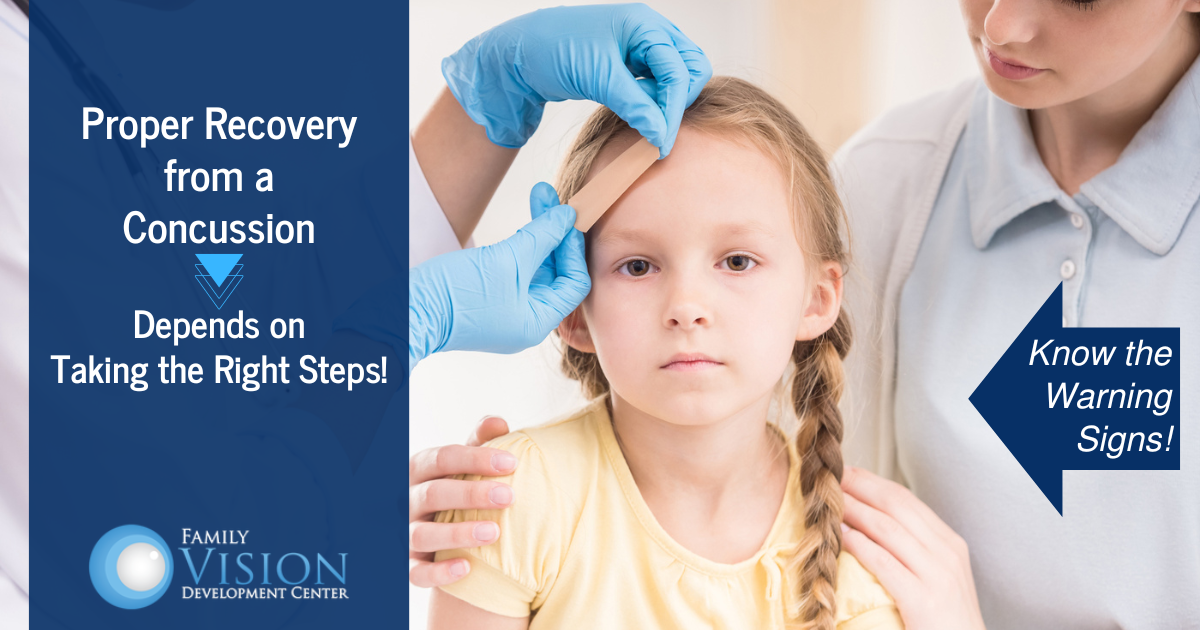A concussion is a type of traumatic brain injury (TBI) that occurs when a violent jolt or blow to the head causes the head and brain to move back and forth very quickly. Proper care following a concussion is essential in order to minimize the effects and prevent lasting repercussions. So, remember the following tips if you have been recently diagnosed or if you even suspect a concussion.
Concussion Do’s and Don’ts
DO immediately stop participating in physical activity. It is very important to get as much rest as possible for the first 24-48 hours. That means taking it easy and getting plenty of sleep, assuming you have not noticed any red flags that could indicate a more serious injury. These signs of a serious injury, such as a bleed or skull fracture, can include:
- Loss of consciousness
- Seizures or convulsions
- Weakness or numbness in arms or legs
- Unable to wake up easily
- Worsening headache
- Increasing confusion, slurred speech or odd behavior
- Bruising around the eyes or ears
- Amnesia
If you notice any of the above signs, seek emergency medical attention right away.
DON’T drive for the first 24 hours following a head injury. This time should be used for evaluation and rest. Similarly, you should avoid school or work until you feel better.
DO see your doctor for an evaluation as quickly as possible. It is always best to have a medical professional assess your injury and determine how serious it is.
DON’T ignore the symptoms. Unfortunately, concussion symptoms are not always easily recognizable. Therefore, watch for any of the following signs and symptoms, which can be cause for concern following a head injury:
- Headache
- Neck pain
- Light sensitivity
- Any changes in vision
- Nausea
- Vomiting
- Balance issues
- Memory loss
- Confusion or difficulty concentrating
- Feeling like you’re “in a fog”
- Anxiety, nervousness or depression
- More emotional or sad feelings
- Loss of energy
- Fatigue
- Sleeping too much or too little
DO understand that symptoms can appear right away, or you might not notice them for days, months or longer.
DON’T take pain relievers such as Advil, Motrin, Tylenol or Aleve, unless directed by your doctor. These can mask symptoms, making it difficult to fully understand the effects of the concussion.
DO follow all instructions provided by any healthcare professionals you are seeing. Even if you start to feel better, it is important to keep up with care protocols established by your doctors in order to maintain proper recovery.
DO seek treatment from a provider who is qualified to treat vision problems following a concussion. Our optometrists have advanced training in neuro-optometric vision rehabilitation. That means we specialize in brain injury-related problems and we know how to correctly diagnose and treat vision issues associated with this type of injury.
Visual Rehabilitation Following a Concussion
Vision problems following a concussion are extremely common and can become persistent if not treated properly. As such, Family Vision Development Center should be an integral part of your concussion recovery process. Our specialized neuro-optometric vision rehabilitation can help restore visual function that has been compromised following a concussion. For instance, this type of therapy is an effective treatment for issues with eye focusing, proper eye movements & tracking, depth perception, loss of peripheral vision and more, all of which can occur due to a concussion.
Early treatment is always best, so DO contact our office at 630-862-2020 for a neuro-optometric evaluation if you have been recently diagnosed with a concussion.
Family Vision Development Center is a full-service vision center offering innovative vision therapy services, post-concussive vision rehabilitation, comprehensive vision exams for eyeglasses and contact lenses, management of ocular diseases including glaucoma, diabetes, macular degeneration and cataracts, and a state-of-the-art optical center offering the latest designs in eyewear.

